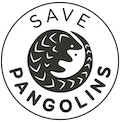Early on in the pandemic, as governments announced shelter in place orders and trade restrictions, illegal wildlife trade became strained. Global attention turned to wildlife consumption and trade as the possible source for Covid-19 and in response, wildlife traffickers started to have difficulty selling their products.
In comparison to 2019 reports, wildlife trafficking in Southeast Asia has seen a decrease in activity on the ground since the pandemic started, which has caused a major shift to online trafficking and using social media platforms to facilitate the change.
The Philippine Department of Environment and Natural Resources (DENR) had the lowest number of seizures recorded in 2020 compared to the past decade. In 2019, the department had 24 recorded seizures, compared to 12 total recorded seizures in 2020. It is still not clear what the full impact the pandemic has had on wildlife trade, as traders and wildlife crime syndicates may just be stockpiling their products, waiting for global attention to alleviate until they can resume on the ground trade.
There is now an increasing shift in illegal wildlife trade to online platforms. This is a result of increased attention on wildlife trafficking during the Covid-19 pandemic, and is facilitated by limited law enforcement for online trade, a complicated issue for governments and law enforcement to address.
Social media is now used by traffickers who have not been able to continue in-person business during the pandemic, but many platforms also make it easy to report these online crimes. Facebook and Instagram have implemented pop-up messages to educate users when wildlife-specific words are used on their platforms. The pop-ups that appear remind users that purchasing protected species is against policy and then directs them to wildlife organizations such as the World Wildlife Fund (WWF).
Facebook is an extremely popular platform for both social media and commerce in Indonesia, the Philippines and Malaysia. Indonesia has the largest number of users at 130 million, and although the country is not a big source for ivory, it is playing an increasingly greater role in ivory trade due to the number of Facebook users and the ivory trade moving online.
In 2018, the world’s biggest tech companies came together with the WWF, TRAFFIC and the International Fund for Animal Welfare (IFAW) to launch the Coalition to End Wildlife Trafficking Online to reduce trafficking using online platforms. The coalition began with 21 tech companies and has now grown to include 40 corporate partners, all committed to reducing illegal trafficking online activity. As the larger platforms have strengthened their online trade monitoring, traffickers have shifted to lesser known social apps like WeChat and Telegram to continue trade.
Although the Covid-19 pandemic had quite an effect on the illegal wildlife trade, transnational crime syndicates have put a lot of effort into continuing their trade and still have plenty of buyers despite the threat wildlife consumption poses to global public health. The pandemic has increased global concern for wildlife trafficking due to its link to public health and global economy, but wildlife legislation, policies and enforcement still need to be improved. The capacity of anti-poaching and anti-trafficking efforts needs to be increased in order to address this increase in cybercrime conducted by heavily resourced transnational crime syndicates.
Click here to read the full Mongabay article, “Wildlife trafficking, like everything else, has gone online during Covid-19.”
Please report wildlife crime:
If you see pangolins and other illegal wildlife in restaurants or other business establishments, contact your local authorities or one of the numbers below.
Cambodia: Wildlife crime hotline. Call +855 (0)12 500 094 / (0)23 224 758.
Namibia: Wildlife Crime Hotline. Call or SMS +264 (0)81 413 2214.
Philippines: Palawan Council for Sustainable Development at 0935 116 2336 (Globe/TM) and 0948 937 2200 (Smart/TNT).
Uganda: Call Uganda Wildlife Authority +256 414 255 000 or +256 (0)751 912 488.
United States: Please call 1-844-FWS-TIPS (1-844-397-8477) or email fws_tips@fws.gov.
Vietnam: Education For Nature (EFN) Hotline. Call +84 1 800-1522 or email hotline@fpt.vn.
Zambia: Department of National Parks and Wildlife - Protect the Pangolins Hotline: +260979355135.
Photo: White-bellied pangolin © Hugues Akpona.





















